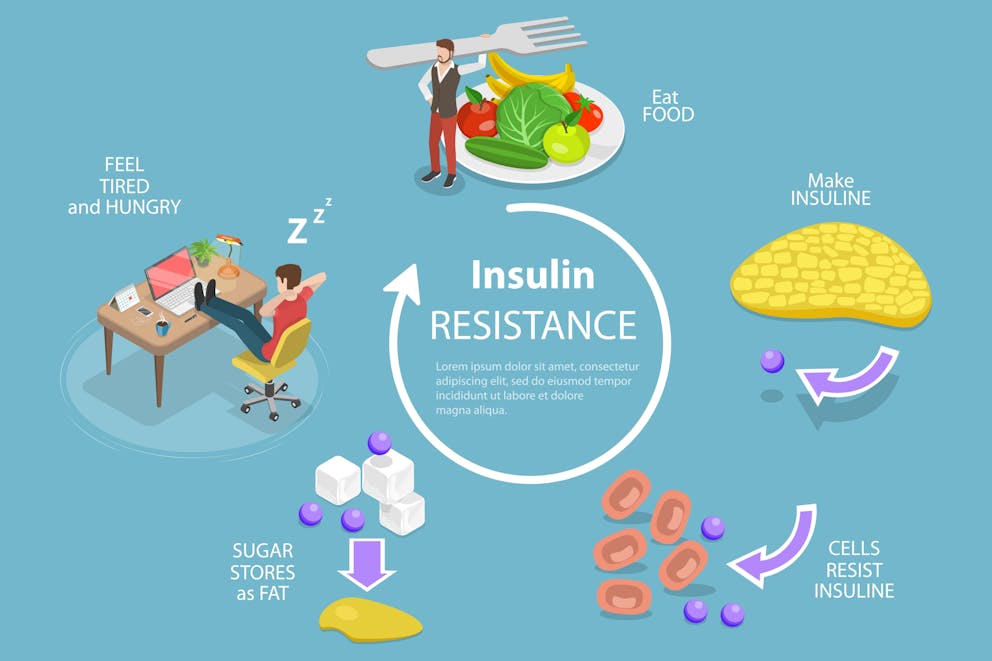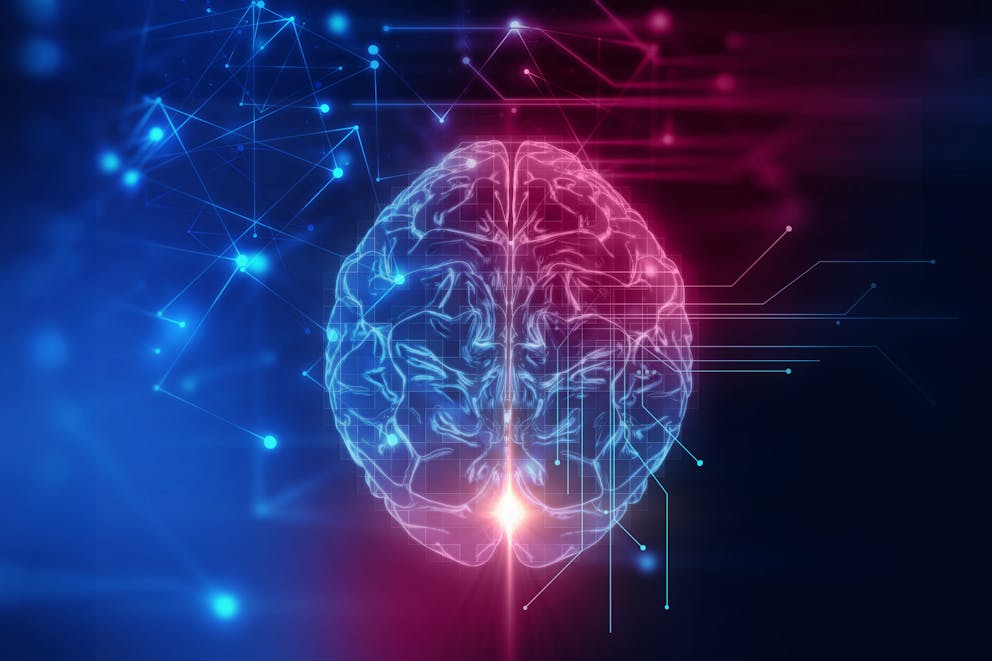18 Things Your Face Can Tell You about Deep Health Problems
Have you ever considered that your face could be a window into your overall health? It sounds a bit unusual, but face health diagnosis is a fascinating concept.
While not a replacement for traditional medical advice, it can offer insightful clues about what’s happening inside your body.
We’ll explore the idea of using face health diagnosis as a tool to better understand your body's signals. Remember, this information should be taken as a starting point to discuss any concerns you may have with your doctor.
For years, I struggled with various health issues, from low energy to troublesome skin. Discovering the world of face health diagnosis, including techniques like computer-aided facial diagnosis that leverage facial recognition technology, was a turning point for me.
I noticed subtle signs I hadn't paid attention to before, like dark circles under my eyes or a persistent redness on my cheeks.
These visual cues, once I understood their potential implications, encouraged me to make changes to my diet and lifestyle.
Over time, I was amazed by the positive ripple effects it had on my well-being.
Face Health Diagnosis: Decoding Your Body’s Messages
It’s fascinating how specific facial characteristics could potentially reflect imbalances or deficiencies within our bodies.
Let’s start by looking at a few areas often associated with specific health concerns. For example, have you ever woken up with puffy bags under your eyes?
This common occurrence might be a sign of fluid retention. Perhaps your diet has been high in salt lately, or it could point to a mild, temporary fluctuation in kidney function.
Hair Loss and Thyroid Health
Hair loss, especially on the top of the head, can indicate elevated DHT, a form of testosterone. An enzyme converts testosterone to DHT, and you can regulate this enzyme by including pumpkin seeds, green tea, and zinc in your diet.
However, thinning eyebrows could potentially indicate a thyroid issue. Addressing potential iodine deficiency might be helpful.
Including iodine-rich foods in your diet, such as incorporating iodized salt into your meals or enjoying seaweed snacks, can make a difference.

Skin Changes and Insulin Resistance
Skin, our largest organ, also offers valuable clues about our internal state. If you've noticed your skin has become excessively oily or prone to acne, it may be a sign of a hormonal imbalance.
For men, increased zinc intake may help regulate estrogen levels, which play a part in managing skin oil production. In women, these symptoms might be related to polycystic ovary syndrome (PCOS).
High androgen levels are often associated with PCOS, and they can be influenced by high insulin levels, often triggered by diets high in refined carbs.
This is where considering a shift toward a ketogenic diet and incorporating intermittent fasting could be beneficial.
These approaches can play a role in balancing hormones and may have a positive impact on skin health.
Eye Health and Nutritional Deficiencies
Our eyes, often called the windows to the soul, are incredibly telling when it comes to our health. If you frequently experience dry eyes, it could indicate an imbalance in your omega fatty acids.
Consuming more omega-3s found in fatty fish like salmon and mackerel and reducing your intake of omega-6s abundant in processed foods can often help.
If you have noticed a yellowish tint to the whites of your eyes, it could indicate high bilirubin levels, possibly pointing to a liver issue.
Incorporating liver-supporting foods such as beets, leafy greens, and garlic is something to consider, along with exploring potential underlying causes with your healthcare provider.
Early diagnosis of any health condition is crucial, and paying attention to subtle signs like changes in eye appearance can be beneficial.
Lip Health
Have you ever noticed cracks at the corners of your mouth, or do you often experience painfully chapped lips?
While these can be simple annoyances, they might signal a vitamin B2 (riboflavin) deficiency. Including foods rich in B2, like almonds, mushrooms, and eggs, in your diet can be a great first step.

How AI Analyzes Skin Conditions for Personalized Care
AI technology is transforming the field of face health diagnosis by enabling highly accurate skin analysis through advanced algorithms.
With the ability to detect subtle patterns and variations in skin tone, texture, and hydration, AI-powered tools can assess potential issues like acne, wrinkles, or pigmentation far more efficiently than traditional methods.
By using vast datasets, AI technology revolutionizes face health diagnosis, providing personalized skincare insights that can be as impactful as comparing treatment options like Armour Thyroid vs Synthroid for thyroid health.
This advancement allows for more proactive and customized care, helping people address skin concerns before they escalate.
Conclusion
Face health diagnosis involves observing specific facial characteristics and exploring their potential correlations with internal health.
Emerging technologies, like those utilizing deep learning methods and facial analysis, are being explored to enhance disease diagnosis.
However, remember that these methods are still under development and should not replace traditional medical advice.
Suppose you're concerned about any of the symptoms or signs discussed here. In that case, seeking guidance and evaluation from your healthcare provider is crucial to receive a proper diagnosis and appropriate treatment plan.
They can leverage their expertise and tools, such as facial image analysis and the identification of facial landmarks, to provide you with the best possible care.
FAQs about face health diagnosis
What disease affects facial features?
Various medical conditions, such as Cushing's syndrome (high cortisol), hypothyroidism (underactive thyroid), and acromegaly (excess growth hormone), can impact facial features.
Neurological disorders and genetic disorders, such as facial paralysis, can also manifest in changes to facial features. Each condition has distinct symptoms, and accurate diagnosis requires medical assessment.
What does your face tell about your health?
While not a definitive diagnostic tool, changes in skin tone, texture, or the appearance of specific areas on the face can provide insights into your overall well-being.
For example, persistent acne may suggest hormonal imbalances or dietary sensitivities, while dark circles under the eyes could indicate sleep deprivation, dehydration, or nutritional deficiencies.
Remember, observing these changes can prompt you to seek personalized advice from healthcare professionals. They can conduct appropriate tests and provide tailored guidance to address the root causes and improve your health outcomes.
Facial attributes, such as skin texture and the presence of wrinkles, can also provide clues about a person's age and lifestyle.
What is facial diagnosis?
Facial diagnosis, a practice rooted in traditional medicine systems, involves observing facial features to gain a deeper understanding of an individual's health.
This approach analyzes facial phenotypes and explores potential connections between facial features and underlying health conditions.
While this holistic approach may offer intriguing connections between outward appearances and inner well-being, it's crucial to remember that facial diagnosis shouldn't replace conventional medical evaluation.
For accurate diagnoses and appropriate treatment plans, seeking guidance from qualified healthcare professionals is paramount.
Healthcare professionals can utilize advanced techniques, like machine learning methods and feature extraction from facial images, to aid in diagnosis and treatment planning.
What is the disease that changes your face?
Several diseases can potentially change one's facial appearance. These include hormonal disorders like Cushing's syndrome and acromegaly, as well as genetic conditions such as Down syndrome.
Dysmorphic syndromes, characterized by abnormalities in the shape and structure of the face, can also significantly alter facial appearance.
It's crucial to understand that diagnosing any of these conditions solely based on facial changes is inaccurate and unreliable.
Comprehensive medical evaluations, including physical examinations, blood tests, and imaging studies, are necessary for making accurate diagnoses.
If you have any health concerns or observe any changes in your body, schedule an appointment with a qualified healthcare professional for proper guidance.
Supporting Data
Previous blog
How to STOP Flatulence (Farting): THIS REALLY WORKS!Tags

Popular
08/21/2024
47.3K views
05/22/2024
41.4K views
11/18/2024
245.7K views
03/18/2024
11/21/2022




